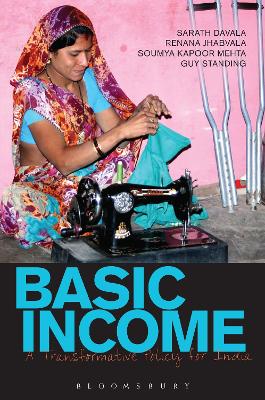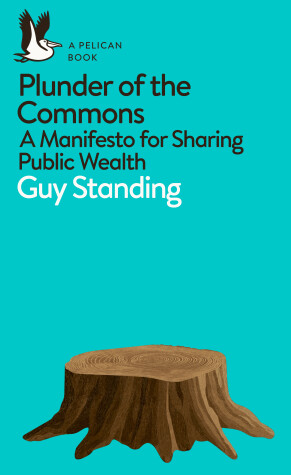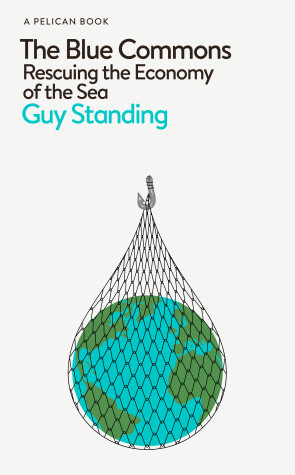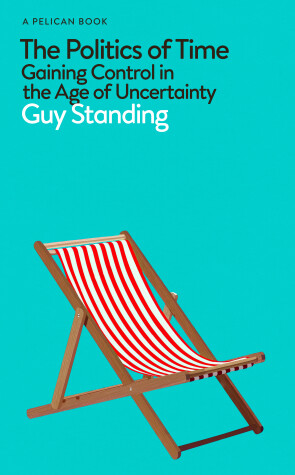Pelican Books
4 total works
Basic Income
by Sarath Davala, Renana Jhabvala, Guy Standing, and Soumya Kapoor Mehta
Would it be possible to provide people with a basic income as a right? The idea has a long history. This book draws on two pilot schemes conducted in the Indian State of Madhya Pradesh, in which thousands of men, women and children were provided with an unconditional monthly cash payment. In a context in which the Indian government at national and state levels spends a vast amount on subsidies and selective schemes that are chronically expensive, inefficient, inequitable and subject to extensive corruption, there is scope for switching at least some of the spending to a modest basic income. This book explores what would be likely to happen if this were done.
The book draws on a series of evaluation surveys conducted over the course of the eighteen months in which the main pilot was in operation, supplemented with detailed case studies of individuals and families. It looks at the impact on health and nutrition, on schooling, on economic activity, women's agency and the welfare of those with disabilities.
Above all, the book considers whether or not a basic income could be transformative, in not only improving individual and family welfare but in promoting economic growth and development, as well as having an emancipatory effect for people long mired in conditions of poverty and economic insecurity.
'One of the most important books I've read in years' Brian Eno
We are losing the commons. Austerity and neoliberal policies have depleted our shared wealth; our national utilities have been sold off to foreign conglomerates, social housing is almost non-existent, our parks are cordoned off for private events and our national art galleries are sponsored by banks and oil companies. This plunder deprives us all of our common rights, recognized as far back as the Magna Carta and the Charter of the Forest of 1217, to share fairly and equitably in our public wealth.
Guy Standing leads us through a new appraisal of the commons, stemming from the medieval concept of common land reserved in ancient law from marauding barons, to his modern reappraisal of the resources we all hold in common - a brilliant new synthesis that crystallises quite how much public wealth has been redirected to the 1% in recent decades through the state-approved exploitation of everything from our land to our state housing, health and benefit systems, to our justice system, schools, newspapers and even the air we breathe. Plunder of the Commons proposes a charter for a new form of commoning, of remembering, guarding and sharing that which belongs to us all, to slash inequality and soothe our current political instability.
A FINANCIAL TIMES BEST ECONOMICS BOOK OF 2022
'A landmark book... The Blue Commons is at once a brilliant synthesis, a searing analysis, and an inspiring call to action.' - David Bollier
'With remarkable erudition, passion and lyricism, Guy Standing commands the reader to wake up to the threat posed by rentier capitalism's violent policies for extraction, exploitation and depletion of that which is both common to us all, but also vital to our survival: the sea and all within it.' - Ann Pettifor
'Shines a bright light on the economy of the oceans, directing us brilliantly towards where a sustainable future lies.' - Danny Dorling
'This is a powerful, visionary book - essential reading for all who yearn for a better world.' - Jason Hickel
The sea provides more than half the oxygen we breathe, food for billions of people and livelihoods for hundreds of millions. But giant corporations are plundering the world's oceans, aided by global finance and complicit states, following the neoliberal maxim of Blue Growth. The situation is dire: rampant exploitation and corruption now drive all aspects of the ocean economy, destroying communities, intensifying inequalities, and driving fish populations and other ocean life towards extinction.
The Blue Commons is an urgent call for change, from a campaigning economist responsible for some of the most innovative solutions to inequality of recent times. From large nations bullying smaller nations into giving up eco-friendly fishing policies to the profiteering by the Crown Estate in commandeering much of the British seabed, the scale of the global problem is synthesised here for the first time, as well as a toolkit for all of us to rise up and tackle it.
The oceans have been left out of calls for a Green New Deal but must be at the centre of the fight against climate change. How do we do it? By building a Blue Commons alternative: a transformative worldview and new set of proposals that prioritise the historic rights of local communities, the wellbeing of all people and, with it, the health of our oceans.
'Guy Standing's books have, over the years, pieced together a necessary political and intellectual agenda ... His Politics of Time is a splendid and timely addition to this body of important work' Yanis Varoufakis
Time has always been political. Throughout history, how we use our time has been defined and controlled by the powerful, and today is no exception. But we can reclaim control, and in this book, the pioneering economist Guy Standing shows us how.
The ancient Greeks organised time into five categories: work, labour, recreation, leisure and contemplation. Labour was onerous, whereas leisure was schole, and included participation in public life and lifelong education. Since the industrial revolution, our time has been shaped by capitalism, our jobs are supposed to provide all meaning in life, our time outside labour is considered simply 'time off', and politicians prioritise jobs above all other aspects of a good life.
Today, we are experiencing the age of chronic uncertainty. Mental illness is on the rise, some people are experiencing more time freedom while many others are having more and more of their time stolen from them, particularly the vulnerable and those in the precariat.
But there is a way forward. We can create a new politics of time, one that liberates us and helps save the planet, through strengthening real leisure and working together through commoning. We can retake control of our time, but we must do it together.



